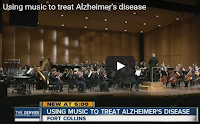
The “B-Sharp Program” Treats Alzheimer’s with Music
There’s fresh hope for people with Alzheimer’s in a new music program. It’s called, “B-Sharp”. See why.

There’s fresh hope for people with Alzheimer’s in a new music program. It’s called, “B-Sharp”. See why.
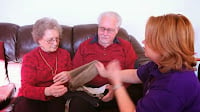
Activities are a cornerstone to dementia health. Watch now for some great tips on how to keep people with Alzheimer’s engaged.

Got enough sunshine? Learn how sunshine seems to offer a bright, simple way to lower your risk of dementia.
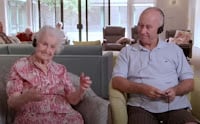
If toward the end of your life your mind was fading away, would your favorite songs help bring your memories back?
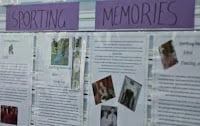
See how Sporting Memories Network promotes the well-being of people living with dementia with projects that tap into their prior passion for sports.

In the lab, the Ketogenic Diet increased cerebral blood flow, improved the gut microbiome, lowered glucose as well as weight, and boosted the brain’s process that clears Alzheimer’s amyloid-beta plaque. Learn more.

What’s behind Michael Rossato-Bennett’s stirring documentary on music’s affect on dementia? See why this film has been a success in the battle against Alzheimer’s.

The help-dementia-with-music movie, “Alive Inside”, tells the story of social worker Dan Cohen’s crusade to help Alzheimer’s patients reclaim their most precious musical memories. Watch Bill Newcott interview the makers of the film.
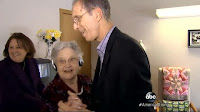
ABC News interviews Dan Cohen, the founder of Music and Memory. See how donated iPods can battle dementia via personalized playlists.
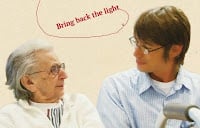
“Do You Know What My Name Is?” produced by Sendai Television Inc., depicts an emotional real life drama of how a “dementia improvement program” was implemented in Ohio.

TWENTY MUSIC VIDEOS: Music says what words never can. Take in these engaging, moving songs about living well with Alzheimer’s.

TEEPA CARE-TIP VIDEO:
Dementia dangerously alters a person’s sense of smell. Teepa Snow brings to light what people with dementia smell – and what they don’t. Learn to prevent hazards and frustrations.

“Sundowning” describes agitation and anxiety often felt towards the end of the day in dementia. See what it is and what you can do about it.

SHORT-TERM MEMORY lapses are obvious signs of Alzheimer’s, but other tell-tale signals begin to show much earlier. Learn how to look for semantic impairments, such as simple questions about size.

Three important dementia studies focus on HS-AGING, a type of dementia almost as common as Alzheimer’s in the 85+ group. Yet few people have heard of it. Why? What makes it different?

An intriguing study of 120 grandmothers might surprise you. Doctors know socially engaged people have better cognition and less dementia. But can a person get too much of a good thing? What’s the right balance?

Enjoy this great duet between a musician with dementia and his son. A triumph of spirit over Alzheimer’s! Sing-a-long if you like!
No spam, only news and updates.


